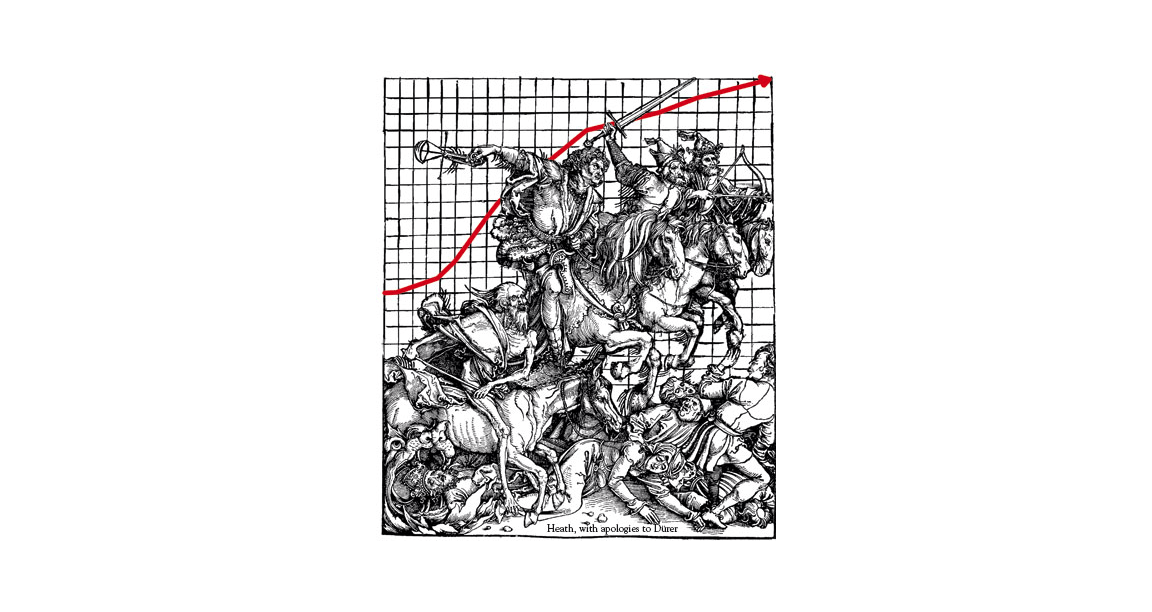Well, that’s alright, then — we’re not going to have another recession. True, the Bank of England’s monetary policy committee expects the economy to shrink by 4 per cent in the first quarter of this year — following a fall of 9.9 per cent fall last year, itself the deepest plunge in economic growth in modern times. By the spring, we may have several million unemployed as the furlough scheme comes to an end. Many thousands of businesses could go bust as they run out of money and government help is withdrawn. But at least we won’t be in recession: because that ended last June and now we’re back in an era of economic growth.
No, it doesn’t make a lot of sense to me, either. The Covid crisis has exposed a deep problem with our official definition of a recession, used by government, Bank of England, Office of National Statistics and many others. It is defined as a period of two or more quarters of negative growth. So, by this measure, we were in recession for the first six months of 2020 — on the grounds that economy shrank by 2.9 per cent in the first quarter and by 19 per cent in the second quarter. However, we then climbed out of recession in the third quarter when growth rebounded by 16.1 per cent.
So far, so good. But then it starts to get a bit silly. GDP figures published by the Office for National Statistics this morning show that the economy managed to creep upwards by 1 per cent in the fourth quarter of 2020. If the Bank of England is right and growth falls again by 4 per cent in the first quarter of 2021, that will be one quarter of negative growth. However, unless it continues to fall in the second quarter, we will not officially have entered a recession. Perversely, the steepest contraction in modern economic history will only have resulted in one brief recession, and that lasting as briefly as it possibly could. In fact, had the first quarter of 2020 run from December 2019 to February 2020 we would likely have got through the whole pandemic without a recession at all. By contrast, the recessions of 2008-09, 1990-91 and 1980-81 each lasted five quarters.
We need a better way to define a recession, but how? I suggest this: a recession begins when the economy has shrunk by at least 1 per cent. It does not end, however, until GDP shows year on year growth. By that definition we would have entered recession last March — a month in which GDP shrank by 6.9 per cent (a greater shrinkage in a single month than occurred across the whole duration of the previous three recessions). We will remain in recession until the economy is showing annual growth. Last summer’s rebound would not have been sufficient to drag us out of it and — with annual growth of minus 9.9 per cent it will be some time before we have escaped.
Does that sound a fairer way to assess what we have been through? Far better than the pretence that we are living in an era of growth.







Comments